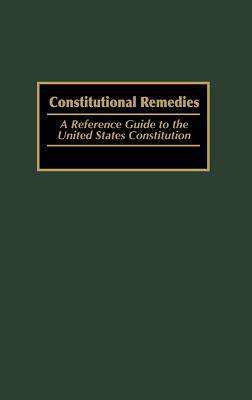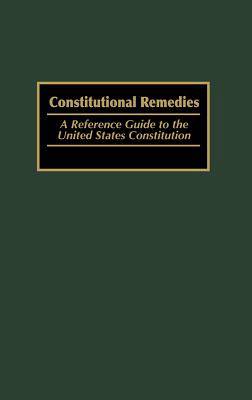
- Afhalen na 1 uur in een winkel met voorraad
- Gratis thuislevering in België vanaf € 30
- Ruim aanbod met 7 miljoen producten
- Afhalen na 1 uur in een winkel met voorraad
- Gratis thuislevering in België vanaf € 30
- Ruim aanbod met 7 miljoen producten
Zoeken
Constitutional Remedies
A Reference Guide to the United States Constitution
Thomas a Eaton, Michael Wells
€ 161,45
+ 322 punten
Omschrijving
Understanding the impact of constitutional rights in the real world depends on understanding the law of constitutional remedies for their violation. Integrating the history, doctrine, and policy of constitutional remedy, Wells and Eaton explain how people go about trying to obtain redress for violations of their constitutional rights. Diverse issues arise when persons seek to bring a lawsuit against governments, officials, or private individuals for violation of their constitutional rights. Among them are whether the injury ought to be accorded constitutional status at all, or instead should be treated as a routine wrong, no different in principle from a traffic accident. If the case warrants constitutional status, the next issue is whether or not suit may be brought against the officer who committed the wrong or his government employer, and so on. On each of these and other issues the authors guide the reader through the complex body of doctrine, the lively case law debates, and the scholarly literature over the appropriate mix of policies and the means by which to achieve them.
Specificaties
Betrokkenen
- Auteur(s):
- Uitgeverij:
Inhoud
- Aantal bladzijden:
- 296
- Taal:
- Engels
- Reeks:
- Reeksnummer:
- nr. 4
Eigenschappen
- Productcode (EAN):
- 9780313314490
- Verschijningsdatum:
- 30/10/2002
- Uitvoering:
- Hardcover
- Formaat:
- Genaaid
- Afmetingen:
- 160 mm x 241 mm
- Gewicht:
- 630 g

Alleen bij Standaard Boekhandel
+ 322 punten op je klantenkaart van Standaard Boekhandel
Beoordelingen
We publiceren alleen reviews die voldoen aan de voorwaarden voor reviews. Bekijk onze voorwaarden voor reviews.











